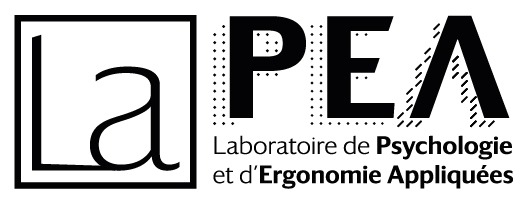Small Group Meeting – Envisioning the Future as a Driver of Individual and Collective Change for the Sustainable Development
The LaPEA (Université Gustave Eiffel, Université Paris Cité) is happy to welcome the Small Group Meeting on “Envisioning the Future as a Driver of Individual and Collective Change for the Sustainable Development”, co-organized with the University of Bath (A. Prosser, School of Management), the International Psychoanalytic University in Berlin (G. Sullivan) and the Deakin University (J. Fernando, School of Psychology).
The conference will take place on June 10th-12th 2025 in Paris (France), at the Psychology Institute of the Université Paris Cité.

The main aim of the meeting is to explore how, when and why individuals imagine, envision, and project themselves into, an environmentally and socially sustainable utopian society, as well as how this process can influence their current behaviors and their intention to engage in behavioural and social change.
Indeed, imagining and contemplating the future is a fundamental driver of human motivation and daily behavior. Without a vision of the positive future consequences of their actions, individuals may prioritize short-term gains or immediate gratification at the expense of long-term sustainability (Wittman & Sircova, 2018; Sahraeian et al., 2021). They may fail to recognize the cumulative impact of their actions on the environment or underestimate the long-term consequences of their choices, leading to inaction or environmentally harmful behaviors (Scholten et al., 2019; Odum et al., 2020). For example, imagine a woman recycling glass bottles without understanding the ultimate purpose of her efforts, or a man being told to reduce his meat consumption but unsure what to cook instead. Neither would be motivated to invest much effort in their ecological initiatives.
A growing body of literature suggests that envisioning the future can motivate individuals to work towards social change. For example, studies have examined individuals’ propensity to engage in mental simulations of utopian futures (Fernando et al., 2018), the ability to generate such mental simulations (Wright et al., 2020; Bosone et al., 2023), and the beliefs associated with such a simulated future (Bain et al., 2013), demonstrating that they are linked to intentions to engage in actions supporting ecological and social sustainability.
The diversity of concepts studied concerning individuals’ engagement in mental simulations of desirable collective futures calls for a synthesis and sharing of the empirical data and methodologies available on this subject. The main objective of the conference is thus to better describe and define this phenomenon, understanding how it is studied worldwide from the perspective of social and environmental psychology.
What psychological concepts are related to individuals imagining, envisioning, prospecting a positive and sustainable collective future? What are the similarities and differences between these concepts? How have they been studied? How are they linked to citizens’ motivation to engage in actions for sustainable social change?
The “small group” format is ideal for promoting exchanges and co-construction of projects. We will therefore limit the number of speakers and attendees (keynote speakers, selected presenters, and organizers) to a maximum of 30-40 people.
PROGRAM OVERVIEW
The conference will last three days, featuring one keynote per day and presentations from selected researchers based on submitted scientific abstracts. The call for submissions will be open by the end of Ocyober 2024, and the deadline for submission will be on the 16th December 2024.
The conference days will be organized around presentations by expert researchers in this field, alternating with presentations by participants of their research/thesis work, allowing for discussions with expert speakers and other participants.
Day 1: What and how do people imagine when thinking about a sustainable future?
- 12:30-13:30: Lunch/Buffet with an introduction of the organizers and the program
- 13:30-14:30: Opening keynote: a panorama on what is being done about this around the world
- 14:30-15:30: Coffee break
- 15:30-17:00: First session of talks
Day 2: Can envisioning be boosted / influenced / taught?
- 09:30: Second session of talks
- 11:00: Coffe break
- 11:30: Third session of talks
- 13:00: Lunch Break
- 14:00-15:00: KEYNOTE – Morgana Lizzio-Wilson
- 15:00: Coffe break
- 15:30-17:00: Early Career Researcher meet-up: a dedicated time for doctoral and post-doctoral researchers to introduce themselves to the community, and for senior researchers to discuss about career opportunities
- 19:00: Gala Evening
Day 3: Envisioning the future and engaging in behavioural and social change
- 09:30-10:30: KEYNOTE – Julian Fernando
- 10:30: Coffe break
- 11:00-12:30: Fourth session of talks
- 13:00: Lunch Break
- 14:00-14:45: KEYNOTE – Gavin Sullivan
- 14:45-15:30: What Next? Round-table on the Future of “Social and Environmental Psychology of the Future”
- 15:30: Closing Remarks
CLICK HERE FOR THE FINAL PROGRAM : Final Program
!! EXTENDED DEADLINE !! The submission deadline has been extended to 5PM GMT on FRIDAY the 10th of JANUARY. You can submit your abstract here: https://docs.google.com/forms/d/e/1FAIpQLSdIAAqY_tWk3d8e88Ujj3MSPQvlHh3Bp6JKJOrYiqUh_PwWpA/viewform?usp=sf_link
CALL FOR SUBMISSION:
The submission portal is going to open on the 4th of November!
All submissions will require title, authors, and a 250 word abstract.
The format of your presentation – should your submission be selected – will be a 15 minute talks. We welcome submissions presenting empirical data (using qualitative, quantitative or mixed methods) as well as novel theoretical or methodological ideas, or proposed research projects where data has not yet been collected/analysed.
The organising team is keen to elevate the voices of people who are traditionally underrepresented in research on behavioural and social change (e.g. due to demographic factors such as race, gender or career stage). Overall, we encourage and will prioritise submissions from early career researchers, or submissions including voices typically underrepresented in social psychology (e.g. due to demographic or geographic characteristics). Online talks (recorded or live) will also be considered, and we encourage hybrid participation in the preconference.
The submission deadline is 5PM GMT on MONDAY 16TH DECEMBER. You can submit your abstract here: https://docs.google.com/forms/d/e/1FAIpQLSdIAAqY_tWk3d8e88Ujj3MSPQvlHh3Bp6JKJOrYiqUh_PwWpA/viewform?usp=sf_link
No specific registration fee will be required for registration, should your submission be selected for communication.
If you have any questions about the small group meeting or your submission, please email Lucia Bosone at lucia.bosone@univ-eiffel.fr . We look forward to reading your submissions!
This event is funded and supported by: 
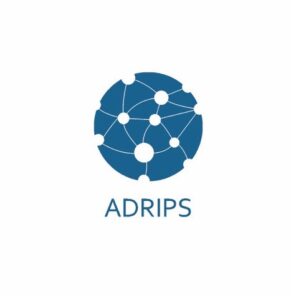
À lire aussi
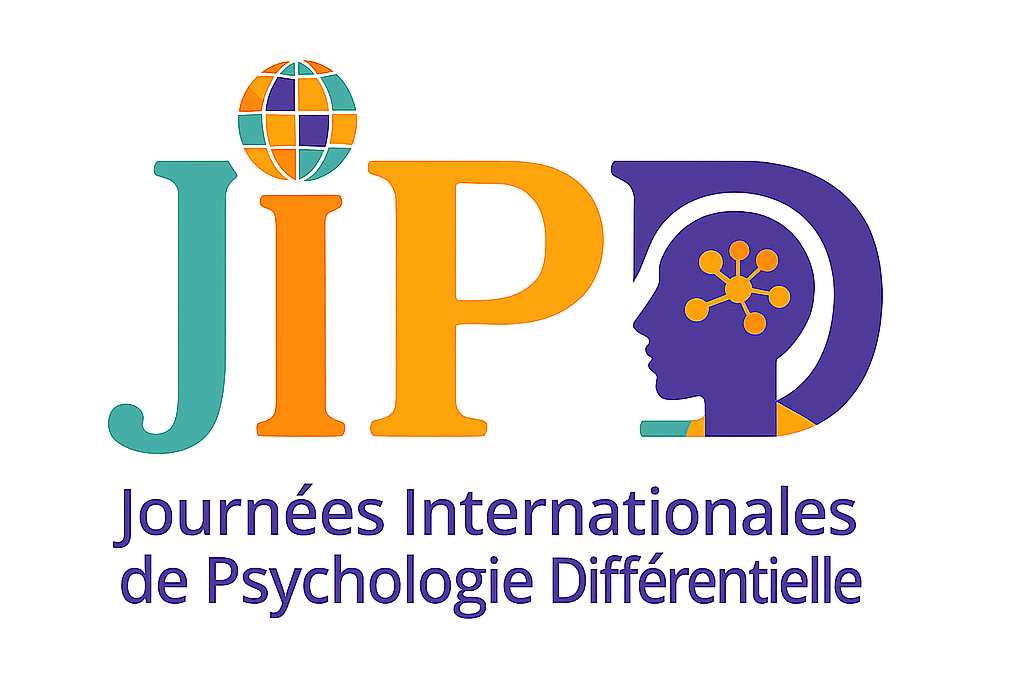
Journées Internationales de Psychologie Différentielle 2026
Le Laboratoire de Psychologie et d'Ergonomie Appliquées (LaPEA) de l’Université Paris Cité organise la 26ème édition de Journées Internationales de Psychologie Différentielle du 6 au 9 juillet 2026 à l'Institut de Psychologie de Boulogne-Billancourt.Les JIPD sont...
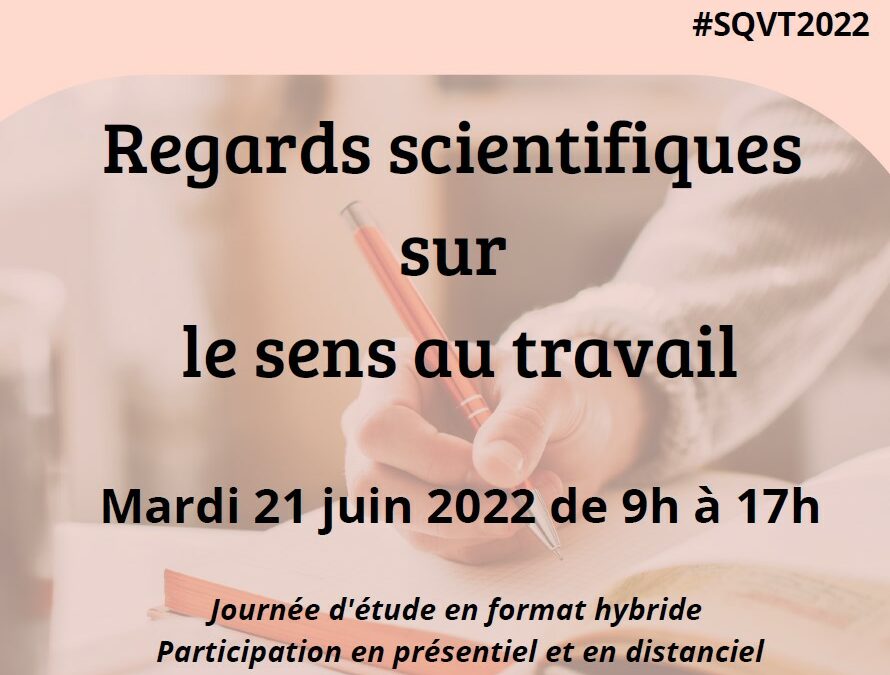
Journée d’études | Regards scientifiques sur le sens au travail | Mardi 21 juin 2022
Chaque année, l’ANACT organise une semaine pour la qualité de vie au travail. En 2022, elle se déroule du lundi 20 au vendredi 24 juin 2022 avec pour thème « En quête de sens au travail ». Plusieurs événements sont proposés à différentes échelles (entreprises, réseaux...

Summer school on Individual and Collective actions for the Ecological Transition (SICET)
The LaPEA, the ARPEnv and the LPI are happy to organise the first international Summer School on Individual and Collective actions for the Ecological Transition. Paris © Pierre Bachlé 5th - 9th of September 2022 Laboratoire de Psychologie et d’Ergonomie Appliquées,...
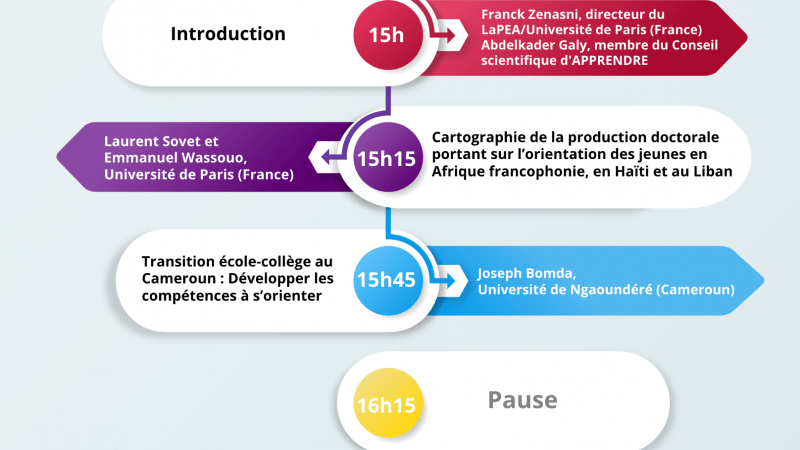
Séminaire international « Éducation et orientation en Afrique francophone : Regards croisés »
Le Laboratoire de Psychologie et d’Ergonomie Appliquées (LaPEA) de l’Université Paris Cité s’est associé avec le programme APPRENDRE pour organiser un séminaire international intitulé « Éducation et orientation en Afrique francophone : Regards croisés » qui se...
